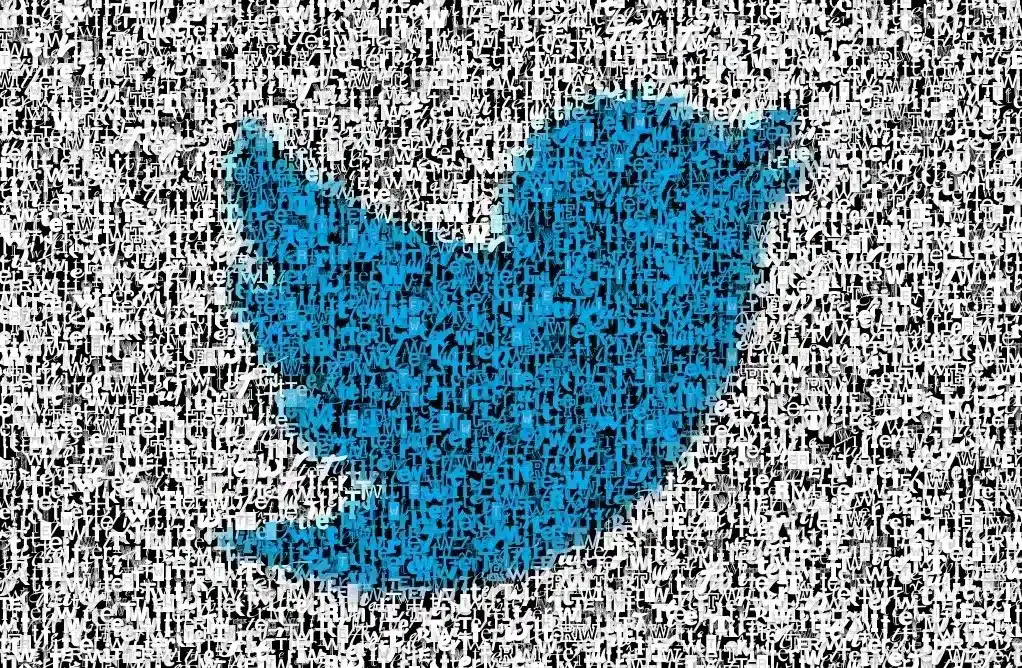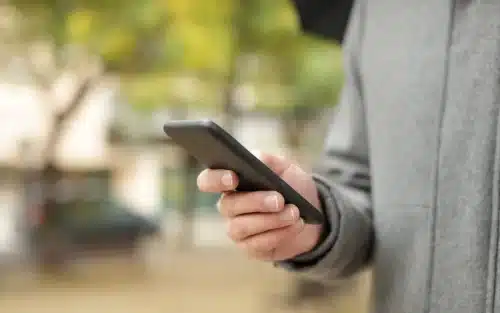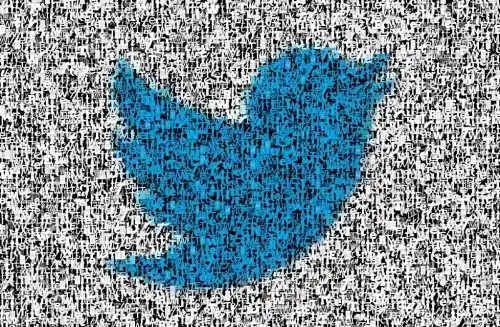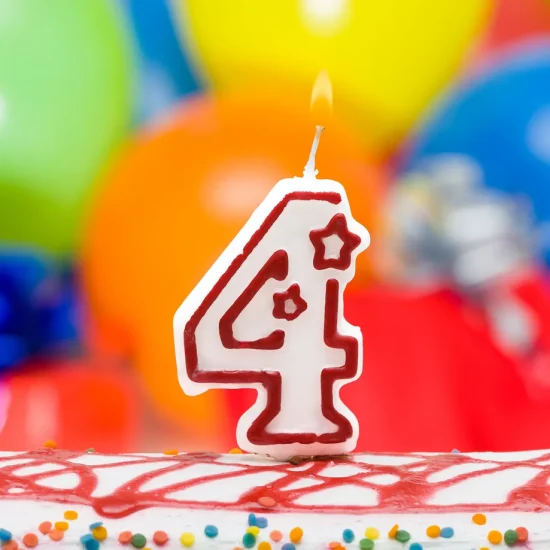
Elon Musk warned that Twitter might soon collapse. We find that disappointing. After all, we first met on Twitter.
Here’s how Brian tells the story: Nearly eight years ago, I found myself heading toward the Missouri State Capitol on a January day early in a new legislative session. I parked my car at the church I attend in downtown Jefferson City so I wouldn’t have to feed a meter. As I walked the couple of blocks to the Capitol, I scrolled through my Twitter feed to check the news.
I saw someone announce they were moving to Jefferson City. My first thought was, “I live in Jefferson City!” My second thought was, “Wait, who is this guy and why do I follow him?”
We later pieced together the backstory. Beau had been one of the few people to buy my book on religious rhetoric in presidential campaigns. (It won lots of awards but didn’t provide much in royalties, which is why I borrow the line from the too-humble Will Campbell to call myself an “author of rare books.”) As a fellow religion and politics nerd working at Sojourners in Washington, D.C., he followed me on Twitter. And when I saw I had a new follower from Sojourners, I followed him back. And we remained mutual followers but otherwise unknown to each other for some time, perhaps years. Until that tweet about moving.
A few months later, after exchanging messages via Twitter, we ended up at a lunch table in a local restaurant. That eventually turned into near-weekly lunches (until the pandemic) as we talked about theology, church life, politics, parenting, and more. Then after a few years of informally solving the world’s problems together over chips and salsa, I brought Beau onto the Word&Way team. And here we are in your inbox every week.
Our move from Twitter followers to real-life friends and colleagues is just one peek at how social media transformed the world in recent years. We might have eventually met in person, but we connected months or even years earlier because of this technology. That sent our friendship and eventually our collaboration onto a fast track. Which is to say, you literally might not be reading pieces co-authored by us if some tech entrepreneurs hadn’t created a new platform where people could write short messages limited back then to just 140 characters.

So, as Twitter’s new owner bumbles along and risks destroying the very network he just purchased for $44 billion, we thought we’d take a look at why this matters — even to people not on Twitter. In this issue of A Public Witness, we look at the erratic chirping happening right now at Twitter. Then we suggest what might be lost if the blue bird app goes the way of Myspace or Friendster.
Get cutting-edge reporting and analysis like this in your inbox every week by subscribing today!
What’s Happening?
Twitter’s role in our personal and professional lives makes watching the present decline — and potential demise — of the platform quite painful. While calling Twitter the global public commons might be a stretch, it has been a valuable resource for encountering new people and ideas. The social media company helped democratize communication and knowledge, but its accessibility also made it fragile. Now it appears close to falling apart.
The exact beginning of the crisis is hard to identify. Twitter long faced questions about its financial viability, the need to moderate content, and the ability to validate users. However, the problems became acute after Elon Musk’s recent purchase and privatization of the company.
After a public dalliance with the idea, the world’s richest man offered to buy the company from its stockholders last April for $54.20 a share (we’ll let you determine the meaning of the 4.20 reference). A couple months later, Musk got cold feet and tried to back out of the deal, setting off a process that enriched a lot of lawyers but also generated negative headlines about the company and transformed the fight into a political cause.
For whatever reason, Musk eventually backed down and closed the deal last month. He immediately fired Twitter’s executives and laid off half its staff. The terminations were so abrupt and haphazard that the company quickly sought to rehire some workers who were fired despite being essential to its operations. Other prominent leaders abandoned their posts over fears that its new leaders were on a collision course with federal regulators.
The early results of reduced content moderation and fewer support staff are alarming. Misinformation is more rampant on the site, with Musk perpetuating the problem himself. Security experts fear the site is becoming fertile ground for scammers. Researchers have documented a substantial rise in tweets using racial slurs and hate speech.

Elon Musk attends Heidi Klum’s annual Halloween party in New York on Oct. 31, 2022. (Evan Agostini/Invision/AP)
But it’s the rollout of a broader verification service that symbolizes the perils facing the company. Before Musk’s purchase, Twitter assigned blue check marks to the accounts of celebrities, journalists, and other influencers whose identities had been authenticated (alas, we’re not important enough to earn the check marks). This way users could be confident that when Pope Francis tweeted, the message was actually coming from him.
Seeking to raise revenue, Musk expanded the eligibility of the “Twitter Blue” program to anyone willing to pay $8 a month. Chaos ensued.
Suddenly, Jesus has a check mark (which opens up a whole new debate about the possibility of God’s ongoing revelation). One verified account claiming to be Nintendo tweeted an image of Mario ironically flipping the bird. Actress Kathy Griffin got banned for impersonating Elon Musk. Other prominent companies, celebrities, and politicians had their names and likenesses used in reputationally harmful ways. Pepsi tweeted that “Coke is better,” LeBron James tweeted he wanted to leave the Lakers, George W. Bush tweeted he misses “killing Iraqis,” and Chiquita tweeted it has “just overthrown the government of Brazil” before a clarifying tweet from a different Chiquita-branded account apologized for the “fake” message because they “have not overthrown a government since 1954.” All of those tweets came from new “verified” accounts. But all of them were fake.
Perhaps the most notorious case involved Eli Lilly. Someone pretending to be the drugmaker falsely announced that “insulin is free now.” The company scrambled to respond as its share price declined noticeably. Twitter, with its capacity reduced due to the mass layoffs, took hours to address the problem and the whole saga has reportedly caused Eli Lilly to suspend all advertising on the platform.
Other advertisers are also allocating their dollars elsewhere amid the chaos, which only further exacerbates the financial challenges facing the company. Analysts claim the initial response to the new verification service has been underwhelming. Even so, the high profile abuses prompted a pause to the service, but Musk recently tweeted it may return next week.
The outstanding question is: Why does God (Not a Parody, Actually God) remain without a blue check mark? Apparently, the owner of the cattle on a thousand hills refuses to pay the man who thinks he’s the wealthiest in the world.
#Gratitude
The tragedy in this devolution is that Musk’s business plans appear destined to destroy Twitter’s societal value. If identities can’t be verified nor information trusted then what’s the point of the platform? Nobody wants to wade through relentless hate speech and poor attempts at comedy to find a conversation partner.
While most famous for hot takes and harsh takedowns (who can forget John Piper’s “Farewell Rob Bell”?), the best use of the platform was gleaning the wisdom of leaders previously available in classrooms, through books, or on the television screen. This unique space has facilitated rich discussions where theory and practice intermixed to produce insight.
Want to learn something about Christian history as it relates to contemporary culture? Anthea Butler, Kristin Kobes Du Mez, Beth Allison Barr, and John Fea have been sharing their thoughts and responding to your questions.
Leading scholars of Christian Nationalism credit Twitter for allowing their work to gain traction. As University of Oklahoma sociologist Samuel Perry tweeted, “Twitter made much of that possible.” Andrew Whitehead, Perry’s fellow sociologist and coauthor of Taking American Back for God, echoed that sentiment.
“Would two Jr. scholars from Oklahoma and (at that point) South Carolina be able to highlight their work & connect with journalists bringing empirical analysis of Christian nationalism to the fore? Doubt it,” he tweeted. “I literally sent a Twitter message to @jackmjenkins. That was it.”
(Earlier this year, we both moved from only knowing Andrew via Twitter conversations to meeting in person. Despite his academic success, he’s quite a humble guy. Also far calmer than you might expect for someone who spends so much time studying and explaining Christian Nationalism.)
Similar conversations exist among theologians, congregational pastors, and religious journalists. Twitter created a space where the curious could have their questions answered. A user could quietly follow the discussions of others or risk interjecting their thoughts into a debate knowing they might alter the conversation in exciting ways or find their own misunderstandings gently (or not) corrected.
Author Kristen Du Mez recently penned “a Twitter tribute” at her Substack newsletter to highlight this side of Twitter.
“If Twitter does go dark, this is what I’ll miss the most: the incisive, wise, and deeply good people I’ve met here,” she wrote. “My favorite thing about traveling and speaking is meeting Twitter friends [in real life]. Virtual relationships are real ones, and we can pick up when we meet in person as though we’re old friends.”
“What’s happened on Twitter was never just virtual,” she added. “Professionally, I consider it a part of the historical record. Personally, it was a big part of my pandemic life, of the life of Jesus and John Wayne, and, for so many of us, it helped us know that we weren’t alone in this.”

(Esther Vargas/Creative Commons)
For all of its faults — and there are plenty — there has also been good on Twitter. Because it’s been a place where a bunch of people have been coming together. Yes, where two or three are gathered online there will be some spammers and jerks. But there are also sincere people looking to meet like-minded people, find good recommendations for things to buy or experience, understand the world better, and laugh at jokes.
If Twitter dies, there’s not yet a space to replace it. Other social media apps operate in significantly different ways, and alternatives are often clunky and less user-friendly. Sure, there will be other ways to connect, but we will lament the loss of this public space. Not only have we built relationships with people, but we’ve also discovered stories to write about and found ourselves cited by journalists. All because of conversations on Twitter.
And we know some of our readers here at A Public Witness found us on Twitter, so we’re thankful for the app bringing you into this community. One of our fears moving forward is that it’ll be harder to find new readers, so please share the pieces you like with others so they can subscribe as well.
Neither of us has left Twitter yet. Maybe we’re in the “denial” stage of grief, thinking it can’t possibly go away. But if it’s time to write our part of the eulogy, perhaps we can borrow from the words of Jesus.
A sparrow cannot fall to the ground without being noticed by God. And if the blue bird falls to its death, we’ll mourn the loss even as we cherish the people we met along the way.
As a public witness,
Brian Kaylor & Beau Underwood






